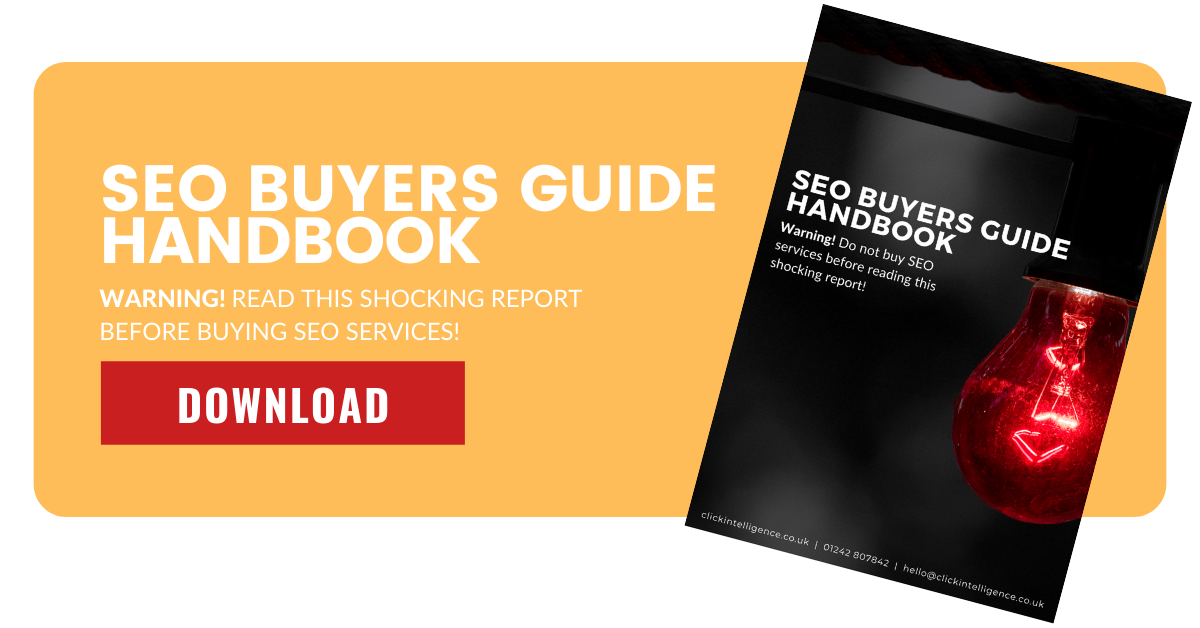The December 2025 Google Core Update Is Complete: What Does It All Mean?
When a Google core update is being rolled out, digital marketers everywhere eagerly wait to…
It’s very easy to make some basic SEO mistakes when you’re first getting to grips with the challenges of SEO. There are a variety of reasons why SEO can be so difficult to get right, and whether it’s because you don’t fully understand how it works or because you haven’t kept up with the changing SEO best practices, it’s essential that you take steps to understand where you’re going wrong.
No matter the size of your brand or company, SEO is the key to your online visibility, and if you want to rank well in search results and get more traffic from organic searches, then you should consider whether you’re following these essential steps.

Here are 8 of the most common SEO mistakes they see and how to fix them.
As an SEO foundation, it’s hard to beat the Google keyword tool. Many people are either unaware that it exists and therefore fail to integrate its use into their SEO strategy, or they believe that by using it they are somehow cheating the system. But this is the number one SEO mistake that can have a negative impact on your results. The Google keywordKeywords are the words and phrases that potential customers might search for to find your business. tool can help you because it lets you know what kind of queries internet users are making that are related to your website, and by using the keywords in those queries and integrating them into your content and metadataPut simply, metadata is data that describes data. It’s a labelling system designed to help machines and humans understand what is contained within a packet of data., you can quickly give your search engine rankings a boost.
Doing so can also lead to another mistake, which is that of using only the most popular, high-traffic keywords in your sector, which will make it far more likely that you will get drowned out by larger online presences.
Solution: Always target the low completion and long-tail keywords as your priority, as these will make it far easier to get high rankings no matter the online presence of your competitors.
Your website will consist of more than just one page, and one of the most consistent mistakes that web designers make is not providing unique titles for each individual page. It is an easy mistake to make, but Google, Bing, and even DuckDuckGo put a lot of emphasis on this most basic of online setups.
If you have all of your pages under the same title or include the website name on every page title, then you are reducing the potential for a quality click-through rate. This can also be affected by other, more minor mistakes, such as making your page titles longer than 65 characters or stuffing your titles with keywords.
Solution: Avoid these potential pitfalls and ensure that each page of your website is crisp, unique and fresh. Use page descriptions and ensure that what you promise in the title is what users will find when they visit your pages.
It can be time-consuming and even distracting, but if you’re not active on social media, then your SEO will suffer as a result. It’s incredibly easy to set up a social media account, and although it’s a mistake to not be active on these platforms, it’s also a mistake to be using the wrong ones.
It’s a fact that social signals now have a much more prominent impact on SEO than previously, but which platforms you decide to use will depend on your sector and your audience. Your market research and data analytics will have identified which social media platforms are most used by your customers, and each has their own unique way of working for businesses.
Solution: Get to know your social media platform and use it wisely, and your SEO performance will be greatly improved. Build both your authority and your trust rankings by interacting with industry leaders on those platforms, as well as with your own customers.

If you have a good piece of content, whether it’s a video or a 2,000-word How-To guide on your latest product, don’t expect that people will immediately start sharing it on Facebook or discussing it on Twitter.
You need to promote your own work, and this can take time and persistence. If your content is of good quality and you have even a small number of followers or email newsletter subscribers, then the shareability increases. Failing to promote your content is a common mistake simply because people assume that by sharing it once on Twitter and once on Facebook, the promotion has gone as far as possible.
Solution: You need to share your content on your social media pages, but you can also use Facebook Ads to target a predefined demographic. You should also consider using LinkedIn as a publishing platform and send your new content directly to your email list.
Additional Solution: If you truly want to add some extra promotional options, then go back over older content and add internal linksHyperlinks, also known as links, are the connection points on a webpage that take you to other webpages. to your new content. You could also write a guest post for another website that includes a link back to your own posts.
The larger search engines like Google and Bing have the free resource that is webmaster tools (although Google changed the name in 2015 to Google Search Console). These can be invaluable, and by not using them, you are flying blind in your SEO.
If you haven’t yet registered with them, then you are missing out on valuable data that can give essential insights into your online property. It is one of the more unforgivable of SEO mistakes, because the user functionality is simple, and even a beginner will be able to make great headway in their SEO strategy with no negatives to consider. You can guess what’s going wrong with your website as much as you like, but with these tools, you can see exactly where you’re going wrong, and use your feedback to finetune your SEO strategy.
Solution: Register with both Google Search Console and Bing webmaster tools, and regularly check the data so that you are more aware of how well your website is performing.
You could be posting daily or weekly, or anything in between, but not having a consistent publishing plan is a very common mistake for even SEO professionals. It’s becoming more and more important that you create a publishing schedule for your content, and that you make the effort to stick to that schedule.
Consistency is one of the lesser utilised elements of SEO, and it does affect your SEO rankings and strategy success. It’s not enough to produce great content. If it is posted inconsistently, then your search engine rankings will be noticeably lower.
Solution: Your scheduling plan should clearly state how many times you plan to publish your new content, and the best way to make sure that you don’t fall behind is by having fresh content ready to drop at all times. Having a back catalogue of evergreen content is an easy way of ensuring that you stick to your schedule and remain consistent.
This is a big factor when it comes to performing badly in search engine visibility. It used to be possible to load your website with weak articles acting purely as filler, and with the right use of keywords, you could be assured that even the weakest content would help boost your online visibility.
Google’s changing algorithms have transformed those early strategies, and instead of helping your website, weak content can actually damage it. ‘Thin content’ is one of the most common reasons why many SEO strategies fail. It is content that isn’t helpful, fails to answer questions, and is generally information-lite.
Solution: First you need to identify your weak content, which can be easily checked by making use of the Google index. You can also use the Google Search Console to make sure that there are no 404-errors. Once you have identified your poorly performing content pieces, remove or update them, and concentrate on making stronger content. Search engines will reward websites that have a focus on authority and trust. Authoritative content will help you to build that trust, and you can get your balance of authority right by aiming for the three key points of what makes for good content:
By using these key points as the foundation of your content strategy, your SEO rankings are far more likely to grow organically.
There are two additional mistakes that are very common when it comes to a successful SEO strategy. These mistakes will affect your online visibility, but they are much easier to tackle. These are:
This helps search engines learn about additional pages on your website, and will also help your readers and site visitors to learn more about you and the subject that they are interested in.
Speed is a major factor for internet users, and your bounce rateBounce rate is the percentage of visitors to a website who visit only one page. A high bounce rate indicates that visitors are not satisfied with your website. will become much higher if your pages are slow to load or unresponsive. A slow-loading website could make a negative difference to your conversionA conversion is a desirable result on a website that leads to an action such as completing an order, filling out a form, or simply clicking on a link. rates, so ensure that your formatting is not slowing down your loading speeds and change to a new website platform if your changes make minimal difference. The faster your website, the higher it will appear in search engine results.
Mistakes are easy to make when it comes to SEO planning. As search engines continue to redefine their criteria, it’s vital that you stay up to date with evolving trends and changing algorithms. Make sure that you are not making any of these common mistakes and your SEO strategy will be much more successful. If you are struggling to climb the ranks of Google or just feel that your site needs a little help, why not book in for a Technical SEO Audit, find out more about SEO Audits here.

If Google's latest Core Web Vitals update has caused havoc to your SEO results, find your solution in our latest in-depth eBook.
It's clear that a new management approach can do wonders for your company, and one of the most cutting-edge and…
There’s a good chance that you’ve already heard of PPC. As a marketing tool, PPC is invaluable, but there seems…